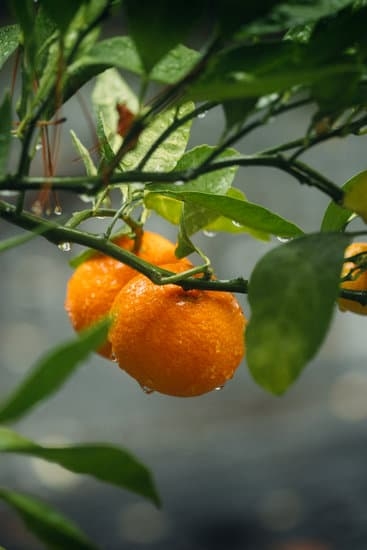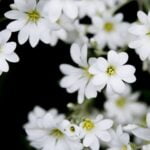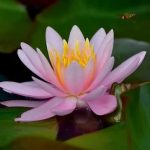Gardening in small spaces may seem challenging, but with the right ideas and techniques, it can be a rewarding and beautiful experience. Whether you have a tiny balcony, a small patio, or even just a windowsill, there are endless possibilities to create a flourishing green oasis. In this article, we will delve into various strategies and creative solutions for making the most out of limited space when it comes to gardening.
One of the key advantages of gardening in small spaces is the opportunity to maximize every inch of your area. By using innovative container gardening ideas such as pots, hanging baskets, and vertical gardens, you can cultivate a wide variety of plants even in limited space. Choosing the right plants that are compact in size or space-saving options can further enhance the beauty of your small garden while ensuring efficient use of space.
In addition to plant selection and creative containers, maximizing sunlight and water play crucial roles in the success of your small space garden. By strategically placing your plants to receive adequate sunlight and adopting efficient watering techniques, you can create an environment where your garden thrives despite spatial restrictions.
Furthermore, engaging in DIY projects like building trellises, raised beds, or mini herb gardens can add a personal touch to your small space garden while optimizing its functionality. With these tips and tricks at hand, you can embrace the joys of gardening no matter how small your space may be.
Benefits of Gardening in Small Spaces
Gardening in small spaces may seem challenging at first, but the benefits are truly rewarding. One of the major advantages of gardening in limited space is the ability to make the most out of every inch available. Whether you have a tiny balcony, a small patio, or just a windowsill, there are countless ways to bring greenery and life into your living space. With some creativity and planning, even the smallest areas can be transformed into lush and thriving gardens.
Enhancing Your Living Environment
Having plants around not only adds beauty to your surroundings but also improves air quality and brings a sense of tranquility to your home. In small urban spaces where greenery may be scarce, creating a garden can provide a peaceful retreat from the hustle and bustle of city life. Growing your own herbs or vegetables can also add freshness and flavor to your meals, right from your own mini garden.
Embracing Sustainable Practices
Gardening in small spaces allows you to practice sustainable living in a practical way. By growing your own produce, you reduce your carbon footprint by cutting down on transportation emissions associated with store-bought fruits and vegetables. Additionally, with proper composting practices and water conservation techniques, you can minimize waste and reduce environmental impact. Small space gardening encourages resourcefulness and creativity in utilizing limited resources efficiently for a more sustainable lifestyle.
Creative Container Gardening Ideas
Gardening in small spaces doesn’t have to limit your creativity or green thumb potential. In fact, with the right ideas and tools, you can transform even the tiniest of areas into a lush oasis. One practical way to maximize space is through container gardening. Here are a few creative container gardening ideas to help get you started:
- Use pots of varying sizes and shapes to add visual interest to your small space garden. Grouping different pots together can create a dynamic and layered look.
- Hanging baskets are excellent for growing trailing plants like strawberries, ferns, or petunias. Hang them from hooks on walls, ceilings, or railing to make use of vertical space.
- Vertical gardens allow you to grow plants upward instead of outward. Utilize trellises, wall-mounted planters, or living walls to add greenery without taking up precious floor space.
When selecting containers for your small space garden, consider factors like drainage holes, material durability, and aesthetics. Remember that the versatility of container gardening allows you to experiment with different layouts and designs until you find what works best for your unique space.
In addition to traditional containers, repurposed items like old wooden crates, tin cans, or mason jars can also be transformed into charming plant holders. Get creative and think outside the box when it comes to choosing containers for your small space garden. By maximizing vertical space and utilizing a variety of containers, you can create a thriving garden in even the smallest of areas.
Choosing the Right Plants for Small Spaces
When it comes to gardening in small spaces, selecting the right plants is crucial to ensure a successful and thriving garden. Compact varieties and space-saving options are ideal choices for maximizing the limited space you have available. These plants are not only perfect for small gardens, but they also offer beauty and practicality in a confined area.
Compact Varieties
Opting for compact plant varieties such as cherry tomatoes, dwarf citrus trees, and bush beans can help save space while still yielding a bountiful harvest. These plants are specifically bred to grow in smaller containers or tight spaces, making them perfect for balconies, patios, or even windowsills. Additionally, compact varieties often require less maintenance and can be easier to care for in small spaces.
Space-Saving Options
Vertical gardening is an excellent space-saving option for small gardens. By utilizing trellises, hanging baskets, or wall-mounted planters, you can grow a variety of plants without taking up valuable ground space. Vining plants like cucumbers or peas thrive when given vertical support, allowing you to make the most out of your limited garden area. Additionally, consider planting herbs in a vertical herb garden to add flavor and fragrance to your small space.
Low-Maintenance Plants
Choosing low-maintenance plants like succulents or herbs can also be beneficial for small-space gardening. These plants require minimal care and attention while still providing beauty and functionality to your garden.
Succulents are drought-tolerant and can thrive in small containers, making them an excellent choice for busy gardeners or those with limited gardening experience. Herbs like rosemary, thyme, and basil not only add flavor to your dishes but also bring greenery to your small space with little effort required.
Maximizing Sunlight and Water
When it comes to gardening in small spaces, one of the key factors to consider is maximizing sunlight and water for your plants to thrive. Limited space means that you have to make the most out of every opportunity to provide the necessary sunlight and water for your plants. Here are some essential tips to help you in successful small space gardening:
- Choose the right location: Place your garden in an area that receives ample sunlight throughout the day. Be mindful of any structures or trees that may block sunlight and choose a spot that allows your plants to get at least 6-8 hours of sunlight daily.
- Use reflective surfaces: Make use of reflective surfaces like white walls or mirrors to bounce sunlight back onto your plants. This can help maximize the amount of light reaching your plants, especially in areas with limited direct sunlight.
- Implement a watering schedule: In small space gardening, it’s crucial to ensure your plants receive adequate water without drowning them. Create a watering schedule based on the needs of your plants and the specific conditions in your space.
By following these tips, you can ensure that your small space garden gets the right amount of sunlight and water for successful growth. Remember that proper care and attention are essential for maintaining a thriving garden, regardless of its size or limitations. With strategic planning and dedication, you can create a beautiful and bountiful garden even in the smallest of spaces.
Whether you have a tiny balcony, a small patio, or just a corner in your home, there are plenty of creative ideas for gardening in small spaces. From utilizing vertical gardens and hanging baskets to incorporating compact plant varieties, there is no shortage of options for making the most out of limited space. With some creativity and thoughtful planning, you can transform even the tiniest area into a vibrant and lush oasis filled with greenery and blooms.
DIY Projects for Small Space Gardening
When it comes to gardening in small spaces, getting creative with DIY projects can make a big difference in maximizing your limited area. One popular idea is creating trellises for vertical gardening. By building simple structures using stakes or repurposed materials, you can train climbing plants to grow upwards, saving valuable ground space. Vertical trellises not only add visual interest to your garden but also provide support for vining crops like tomatoes, cucumbers, and beans.
Another DIY project that works well for small space gardening is building raised beds. These elevated planters are ideal for areas with poor soil or limited planting space. By constructing raised beds with wood, cinder blocks, or even recycled materials, you can control the quality of your soil, improve drainage, and prevent weeds from encroaching on your garden. Raised beds are perfect for growing vegetables, herbs, and flowers in a compact and organized manner.
For herb enthusiasts in small spaces, creating mini herb gardens is a fun and practical DIY project. Whether you repurpose old containers as herb planters or design a custom herb spiral using stones or bricks, having fresh herbs at your fingertips is both convenient and rewarding.
Growing herbs like basil, mint, parsley, and thyme not only adds flavor to your meals but also attracts pollinators to your garden. With some creativity and basic DIY skills, you can enjoy a variety of herbs without taking up much space in your small garden area.
Utilizing Small Space Gardening Tools
When it comes to gardening in small spaces, having the right tools can make all the difference. Limited space means you need tools that are efficient, compact, and easy to store. Thankfully, there are plenty of options available that are specifically designed for small space gardening.
One essential tool for small space gardening is a set of mini hand tools. These smaller versions of traditional garden tools are perfect for working in tight spaces like raised beds or container gardens. Look for mini trowels, rakes, and shovels that will make planting, weeding, and cultivating a breeze in your limited gardening area.
Another useful tool for small space gardening is a pair of precision pruning shears. These compact clippers are great for trimming plants in confined areas without damaging surrounding foliage. They allow you to easily shape and maintain your plants without taking up too much space or causing unnecessary disturbance.
Additionally, consider investing in a collapsible watering can or hose for your small space garden. These tools can be easily stored when not in use and provide a convenient way to water your plants without taking up precious space. With the right compact tools at your disposal, you can effectively manage and care for your small space garden with ease.
| Compact Tool | Use |
|---|---|
| Mini hand tools | Planting, weeding, and cultivating in tight spaces |
| Precision pruning shears | Trimming plants without damaging surrounding foliage |
| Collapsible watering can or hose | Efficiently watering plants without taking up too much space |
Maintenance Tips for Small Space Gardens
Maintaining a small space garden is crucial to keep it flourishing and healthy throughout the seasons. One important aspect of maintenance is regular watering and monitoring of sunlight exposure, especially in confined areas where plants may not receive as much natural light.
Installing a simple irrigation system or utilizing self-watering planters can help ensure your plants get the moisture they need, even if you have a busy schedule. Additionally, rotating your pots and containers to evenly distribute sunlight among your plants can prevent them from becoming leggy or reaching towards the light source.
Incorporating routine pruning and deadheading into your gardening regime will also help keep your small space garden looking neat and tidy. Removing spent flowers, damaged leaves, and overgrown branches will not only improve the aesthetic appeal of your garden but also promote new growth and flowering.
Regularly inspecting your plants for signs of pests or diseases is equally important in a limited space where infestations can quickly spread. Implementing natural pest control methods such as neem oil sprays or introducing beneficial insects can help protect your plants without using harmful chemicals.
To further enhance the health of your small space garden, consider adding organic matter like compost or aged manure to boost soil fertility and structure. This will provide essential nutrients for your plants to thrive in a confined area with limited access to nutrients from the ground. Mulching around your plants can also help retain soil moisture, suppress weeds, and regulate soil temperature – all contributing factors to maintaining a successful small space garden.
| Maintenance Tips for Small Space Gardens | Keeping Your Garden Thriving in Limited Space |
|---|---|
| Proper watering and sunlight management are key | Regular pruning and deadheading for plant health |
| Implement pest control measures naturally | Add organic matter like compost for soil fertility |
Conclusion
In conclusion, gardening in small spaces presents a wonderful opportunity to explore the beauty of nature even within limited areas. By embracing creative container gardening ideas such as using pots, hanging baskets, and vertical gardens, individuals can make the most out of the space they have available.
Additionally, selecting the right plants for small spaces, maximizing sunlight and water, as well as engaging in DIY projects like creating trellises and mini herb gardens can all contribute to a successful small space garden.
Furthermore, utilizing compact gardening tools designed for small spaces can help streamline maintenance tasks and ensure effective care for your plants. With proper upkeep and regular maintenance, even the smallest of gardens can thrive beautifully. Whether you live in an apartment with a balcony or have a tiny backyard, there are endless possibilities and ideas for gardening in small spaces that can bring joy and satisfaction to your daily life.
Overall, gardening in small spaces is not only about maximizing limited areas but also about cultivating a sense of peace and connection with nature. The beauty of nurturing plants, witnessing their growth, and enjoying the fruits of your labor can be equally fulfilling whether you have acres of land or just a few square feet. So, embrace the joys of gardening no matter the space restrictions-it’s a rewarding endeavor that brings positivity and tranquility into your home.
Frequently Asked Questions
How Do You Garden in a Small Space?
Gardening in a small space requires careful planning and creativity. Utilizing vertical space by using hanging planters or trellises can maximize growing area. Choosing compact varieties of plants and using containers strategically can also help make the most of limited space.
How Do You Grow a Lot of Vegetables in a Small Space?
Growing a lot of vegetables in a small space is possible through intensive planting techniques such as square foot gardening or intercropping. Succession planting allows for continuous harvests throughout the growing season, while choosing high-yield crops like tomatoes or peppers can help maximize productivity.
How Do You Make a Small Garden Beautiful?
Making a small garden beautiful involves paying attention to design elements such as color, texture, and focal points. Incorporating various levels with raised beds or plant stands adds visual interest, while using containers in different shapes and sizes can create a dynamic look. Mixing flowers with foliage plants can also enhance the overall aesthetic appeal of the garden.

Welcome to my gardening blog! I am passionate about plants and enjoy sharing my knowledge and experiences with others. In this blog, I will write about everything related to gardening, from tips on how to get started to updates on my own garden projects.





